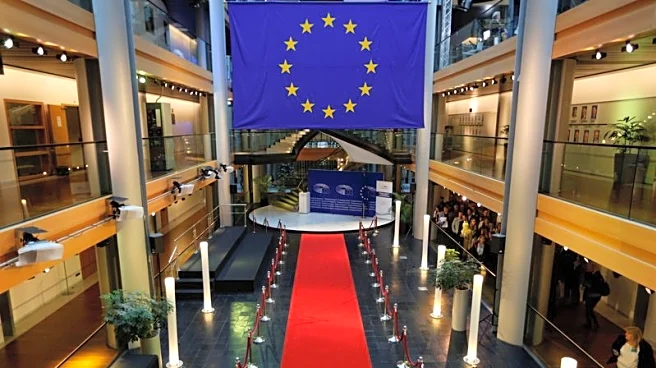By Philip Blenkinsop
BRUSSELS (Reuters) -The European Parliament called on Wednesday for the European Union to set minimum ages for children to access social media, to combat a rise in mental health problems among adolescents from excessive exposure.
The call, which is not binding, comes as Australia is poised to institute the world's first social media ban for children younger than 16 and as Denmark and Malaysia also plan bans.
French President Emmanuel Macron has previously called for EU regulation
to ban social media for children under 15, although it is not quite clear how the EU would carry this out, given it is up to individual EU members to impose age limits.
Parliament's resolution, backed by 483 votes to 92, with 86 abstentions, called for an EU-wide ban on access for children under 16 to online platforms, video-sharing sites and AI companions without parental consent and an outright ban for those younger than 13.
"We are in the middle of an experiment, an experiment where American and Chinese tech giants have unlimited access to the attention of our children and young people for hours every single day almost entirely without oversight," Danish lawmaker Christel Schaldemose, the resolution's sponsor, told the parliament in a debate on Tuesday.
Schaldemose said those behind the experiment included X boss Elon Musk and Meta's Marc Zuckerberg and China's Communist Party and "their tech proxies at TikTok".
The effects of social media on children's health and safety have become a growing global concern, with companies including TikTok, Snapchat, Google and Meta Platforms - the operator of Facebook, Instagram, and WhatsApp - facing lawsuits in the United States for their role in fuelling a mental health crisis.
Parliament's resolution also called for a ban on loot boxes, virtual items that can be won or bought with real money, and on engagement-based recommender algorithms for minors, as well as legislation to require age-appropriate content design.
"With this report, we finally draw a line. We are saying clearly to the platforms 'You're services are not designed for children and the experiment ends here'," Schaldemose said.
(Reporting by Philip Blenkinsop)

















